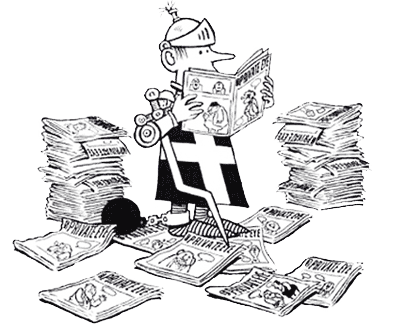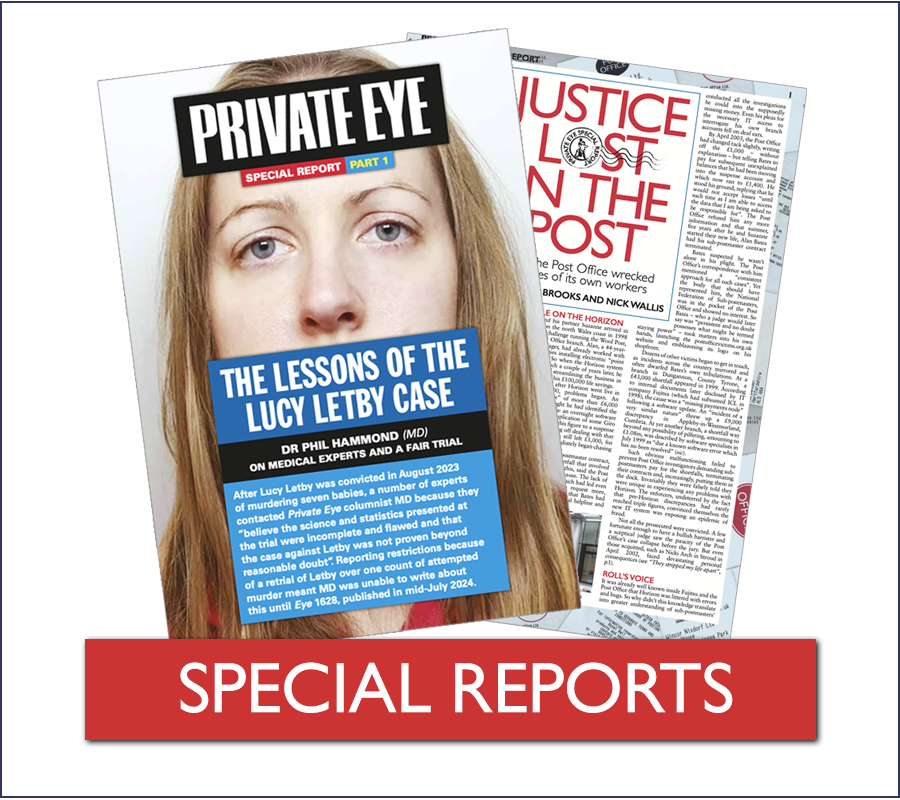Issue 1651

With Bio-Waste Spreader: "Latest figures from HM Revenue & Customs reveal the full extent of the UK's growing food trade deficit, which now stands at £42bn – a staggering 61 percent increase since 2019 (the last year before the UK left the EU). In just the first three months of this year, that deficit has increased by a further 7 percent compared to the same period a year earlier. But what is causing this catastrophic combination…"

With MD: "The diagnosis of just about everything is on the rise. Asthma, ADHD, autism, anxiety, depression, post-traumatic stress disorder, multiple cancers, multiple genetic diseases, dementia, hypertension, hypercholesterolaemia, diabetes, osteoporosis, kidney disease, polycystic ovarian syndrome, endometriosis, pulmonary emboli, aortic aneurysms, chronic Lyme disease, sexually transmitted infections, sexual dysfunction, caffeine-use disorder and a compulsion to vote for Reform…"

With Dr B Ching: "Tory MP Robert Jenrick's fare-dodgers video on YouTube would have carried more authority if his own government had been tougher on ticket fraud and rail finances generally. The shadow justice secretary filmed himself confronting defrauders at a London Underground station and accused mayor Sadiq Khan of ignoring a problem that leaves taxpayers and honest passengers paying more to cover railway costs. But…"

With Remote Controller: "The biggest sin in the theology of Doctor Who is referring to the central character by the title of the series: he (or, on rare occasions, she) is called the Doctor. Now, though, the title has a different ambiguity. For the first time in 62 years – even if you take into account the 16-year gap in the middle, during which Paul McGann took on the role in a one-off movie (this stuff really matters to Whovians) – we don't know who the Doctor is…"

With Old Sparky: "Yorkshire tree-burning power generator Drax is showing clear signs of giving up on the UK, lured by visions of untold wealth in the wider world – ideas sold to Drax management by über-consultancy McKinsey. This is despite the new four-year, multi-billion bung offered by energy secretary Ed Miliband (Eye 1643), currently being strong-armed through parliament. Until now, Drax's clear focus has been its vast Selby plant, the UK's biggest CO2 emitter…"

With Lunchtime O'Boulez: "Among the many complaints against Arts Council England (ACE), one persistent grievance – dragging on for almost a decade – is over its flawed online portal, Grantium, with which arts organisations have to grapple in order to apply for funds. Introduced in 2016, it cost nearly £1m and has caused trouble from the start. With questionnaires of biblical proportions to be filled in – page after page were you to try and print them out – it's cumbersome, incomprehensible…"

With Slicker: "Just as war has been described as too important to be left to generals, so government is far too important to be left to billionaires, even if they believe – as Donald Trump and Elon Musk unsurprisingly do – that they know best and what works in business works for everybody. The all too predictable Trump/Musk divorce – like Zia Yusuf's in-out-in relationship with Reform UK – exemplifies the history of what happens when entrepreneurs and politics collide..."

Letter from Tripoli
From Our Own Correspondent: "If enough time passes, a devastating condition becomes an empty phrase. That's how the failed state of Libya must seem to those who don't live here. In Tripoli, the night of 13 May began with the not unusual sound of small arms fire – and then a bombardment in the east, west, south and centre of the city that was unprecedented since the allied bombing raids of 1943. By lunchtime the following day, there was a ceasefire…"



































